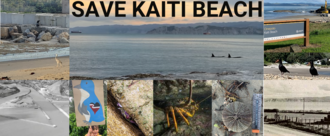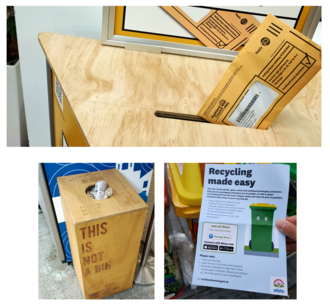-
Tiakina tō tātou hau / Save our airMāori have deep seated beliefs of the natural world, that it has a spiritual mauri. This is why we had and still have entities that represent these natural resources. None of the RMA consents ever take this aspect of our beliefs into account. And now the Mauri of nature of Papatuānuku (earth) and Ranginui (sky), Tangaroa (sea), Tāne Mahuta (Forest) is dying, And we will also eventually die because of this. Māori suffer high rates of respiratory illness, cancer and early death not to mention ill mental health because of the systematic barrage of pollution of nature. Everyone will suffer mental illness because nature is dying. This pyrolysis plant will destroy our quality of air, land and waterways through its discharges and waste residue such as charcoal and slag. Thereby creating an unsafe environment for our descendants. We have a lot of polluting factors in this area such as a high volume of traffic and fumes, industrial waste, stench coming from the slaughter houses and their waste, a Pyrolysis plant will add to that pollution as it will be burning plastic as well. The plant needs to have a continuous feedstock which means all the rubbish from the lower North Island will be coming to Feilding! We want an environment now and into the future that is as healthy and sustainable as possible. The barrier to our success is the Horizons regional council and their consenting of such permits. They hear our submissions and our protest but go ahead with their various projects. None of which actually benefit tangata whenua. The other barrier is that the Council which should be listening to ALL of its constituents are putting money and profit before people and the need and want to preserve what we have for future generations. It is urgent because the plant itself is being built and the last piece of the puzzle (the emissions to air permit) is under consideration right now. We do have a time to put in our objections via submission but there is no guarantee that we will win. There is an urgency to pull out all the stops. The impact of your action will allow us to investigate and implement a Zero waste management operation, that will benefit our community via jobs for locals, encourage people to be conservative with their waste, to recycle, re-use , and repurpose. We would have repair cafes which encourage reusing furniture and so on instead of continually throwing unwanted items away.. It will also only deal with our local waste, not everyone's in the bottom of the North Island. Your help will make all the difference.419 of 500 SignaturesCreated by Mereti Taipana
-
Press Pause on the Charities Act changesThe charities sector, accountable first to the communities of Aotearoa, plays an important independent role in our democracy. With over 28,000 registered charities in New Zealand, the Charities Amendment Bill will have a far reaching impact in the for-purpose (aka the ‘not-for-profit’) sector. It has been asked whether the Charities Amendment Bill is a ‘wolf in sheep’s clothing’. While some elements of the Bill are helpful and look good, the devil is in the detail. Government says the Bill will ‘modernise’ the Charities Act 2005. In fact, much of the Bill ensures greater Government control of the charities sector, reduced sectoral independence, and a reduction thereby of the sector’s essential contribution to democracy. It was Labour Party policy for the 2017 election to “prioritise the long-promised first principles review of the Charities Act”. This would include ensuring that charities can engage in advocacy without fear of losing their charitable status. The Minister now says this review is not needed. Any legislation impacting on this sector needs to provide an enabling framework rather than one that restricts the sector from being a voice for its communities. This will be the last chance for the Act to be independently reviewed for many years to come. The petition can be signed by an individual or an organisation, or by both, separately. Please complete this signing by midday on 8th December, so it can be submitted to the Select Committee in time. We encourage you to make your own submission by emailing the Select Committee directly at [email protected] or using this online form on the Parliament website: https://www.parliament.nz/en/pb/sc/make-a-submission/document/53SCSS_SCF_BILL_127163/charities-amendment-bill261 of 300 SignaturesCreated by Tim Howard
-
Include the queer community, women and disabled people under hate speech law changesIn 2022, there have been numerous attacks on the queer community. An arsonist burned down the Rainbow Youth drop-in centre in Tauranga. Gloria of Greymouth, a pink queer church, was vandalised with anti-queer and religious symbols. The owner of Woof!, a queer bar in Dunedin, received two anonymous death threats through the bar's social media account and messages from Freedom and Rights Coalition leader and Destiny Church pastor Derek Tait, of Christchurch, including an image of Tait pointing at the bar. Hours after the Labour Party announced that it will exclude the queer community from protection under hate speech laws, a 22-year-old gunman entered Club Q, a queer nightclub in Colorado, and immediately opened fire, killing at least five people and injuring 25 others. In 2017, an Auckland pastor Logan Robertson said he was "not against [gay people] getting married as long as a bullet goes through their head the moment they kiss". That statement will remain legal under the government's changes to hate speech laws. Are we waiting for a mass shooting inspired by homophobia and transphobia to transpire at a New Zealand queer bar before we protect queer people from hate speech that incites violence? How many lives will it take before the government protects us? There is well-documented hatred against queer people to necessitate the protection of queer people under hate speech laws. The government's failure to do so will embolden homophobic and transphobic groups, extremist religious groups, and right-wing groups to incite violence against queer people. The government must protect the queer community, women and disabled people under the hate speech law. https://www.stuff.co.nz/national/crime/129122700/man-admits-antisemitic-and-homophobic-attack-on-west-coasts-pink-church https://www.nzherald.co.nz/nz/destiny-church-pastor-accused-of-intimidation-after-posing-outside-queer-friendly-bar-in-dunedin/SXLGUMQ6Y5LO6SZEOWNW4ZQ3DM/ https://www.stuff.co.nz/bay-of-plenty/300700598/pair-plead-guilty-to-burning-down-rainbow-youth-building https://www.newsroom.co.nz/nzs-hate-speech-laws-explained https://www.stuff.co.nz/national/politics/300743361/hate-speech-reforms-drastically-watered-down https://www.theguardian.com/us-news/2022/nov/20/people-killed-shooting-at-colorado-springs-nightclub10,575 of 15,000 SignaturesCreated by Shaneel Lal
-
Take seven steps toward a fairer future for all of usNo matter who we are or where we live, everyone deserves a fair go. When we have the things we need like a roof overhead, kai on the table, and support around us, we can build great lives for ourselves and our whānau. During the pandemic, wealth has been further unfairly concentrated in the hands of just a few. As corporations - like banks, supermarkets, and energy companies - brag to their shareholders about record profits, prices rise dramatically for basics like food, rent, and petrol. [1] Private companies have cashed in on the Covid crisis, generating record profits for them and record hardship for many of us. We had a long period of high housing costs and low wages before COVID hit our shores. Successive governments had chosen to underinvest in services that support wellbeing - like public housing and income support. With inflation rising, hundreds of thousands of tamariki across Aotearoa are living within the constraints of poverty, despite their parents’ best efforts. These seven steps are a circuit breaker for people and whānau whose lives have been most disrupted by the cost of living crisis and the pandemic. Parents, workers, carers, and learners on low incomes - whether they are currently working or not - who are doing their best to provide for themselves and their loved ones. They’re backed by 40 groups who work for all families to thrive. These are tangible steps people in government can choose to take to unlock families from poverty. They’ve been developed by the Fairer Future coalition which is made up of communities, and organisations working and living on the frontlines of poverty, and those who support and serve them. [2] The first three steps are about ensuring everyone has a liveable income - backed by research on what a liveable income is right now - including an increase to the disability allowance to ensure ongoing costs for disabled people are covered. [3] The other steps are changes to policies and practices to make sure everyone can live with dignity: Making sure people can get into relationships without their incomes getting cut. - Removing sanctions - where benefits are reduced, suspended or cancelled, often for confusing, arbitrary, or demeaning reasons. - Wiping debt owed to the Ministry for Social Development that’s often accrued by the Ministry making mistakes in their payments due to the complexity of the system. [4] - Improving supplementary assistance and urgent grants to make sure people have what they need to cover ongoing costs like rent, and help through times of hardship. The Seven Steps work in tandem to ensure everyone can participate fully in society. They will create a welfare system we can be proud of for supporting our communities through economic shocks - like the pandemic and climate crisis - and recognising everyone for their worth. When people have to choose between rent, warmth, and food, our society is out of balance. Now’s the time for the Government to build a fairer future for all of us by taking these steps. Our wellbeing is interconnected; when everyone in our communities has what they need, we all flourish. References and further reading: 1. Banks, energy companies post huge profits as households struggle. 1 News, 25 August 2022: https://www.1news.co.nz/2022/08/25/banks-energy-companies-post-huge-profits-as-households-struggle/ 2. The Seven Steps for a Fairer Future report. Fairer Future, May 2022: https://fairerfuture.org.nz/seven-steps-for-a-fairer-future 3. What are Liveable Incomes in 2022? Fairer Future, March 2022: https://fairerfuture.org.nz/liveable-incomes-2022 4. Welfare debts pushing thousands into ‘poverty trap’. NZ Herald, December 2021: https://www.nzherald.co.nz/nz/politics/welfare-debts-pushing-thousands-into-poverty-trap/EPGLUQODX56EEZLFNY7XLXV2ZI/6,445 of 7,000 SignaturesCreated by Fairer Future

-
Decriminalize Psychedelic DrugsIn New Zealand, possession, use, and social supply of psychedelic drugs carries the same penalty as drugs such as heroin, methamphetamine, and cocaine. Neither LSD, DMT, nor magic mushrooms are physically addictive, with no withdrawal symptoms and mellow comedowns. in addition to this, they're also nearly impossible to overdose on, and both (especially mushrooms) do not negatively impact physical health, provided they are taken correctly, in a controlled setting, and are pure LSD/mushrooms. People found in possession of LSD, magic mushrooms, or DMT are currently faced with up to an $1000 fine, or up to 6 months in prison. Decriminalizing and providing education on psychedelics would not only be more appropriate, given the evidence of the nature of both drugs, but would also mean no charges for those found in possession of these drugs, who tend to be predominantly young, male, and Māori. . An overwhelming amount of evidence clearly shows that punishment and convictions for drug users don’t decrease drug use. In truth, New Zealand’s current drug laws are fuelled by stigma, marginalization and are focused on punishment rather than education and rehabilitation. Sources: https://www.discovermagazine.com/health/classic-psychedelics-arent-addictive https://www.drugfoundation.org.nz/policy-and-advocacy/drugs-and-criminal-justice/ https://thelevel.org.nz/drug-information/psilocybin-mushrooms/ https://thelevel.org.nz/drug-information/lsd/ https://www.medicalnewstoday.com/articles/306889#risks https://www.vox.com/2015/7/24/9027363/acid-lsd-psychedelic-drugs260 of 300 SignaturesCreated by Meredith Bowler
-
End Israel's travel discrimination against New ZealandersNew Zealand and Israel have a reciprocal visa-free entry for their citizens. Before the new rules, all New Zealanders could travel to Israel visa-free and subsequently enter the occupied Palestinian West Bank (entry is controlled by Israel). Under the new rules which came into effect on October 20th, New Zealand citizens with dual citizenship from five countries, including Jordan (about 60% of Jordan’s population is of Palestinian origin), will not be allowed to visit the occupied West Bank under any circumstances, while other New Zealanders will still be able to. The new Israeli imposed travel rules create two unequal classes of New Zealand citizens on the basis of their national origin, which is an unlawful discrimination according to New Zealand’s basic rights and freedoms. The discriminatory rules have devastating impacts on the Palestinian community in Aotearoa. The rules mean we can no longer visit our whenua in the occupied West Bank, a privilege that all other New Zealanders have. Many Palestinian kiwis have family in West Bank, and they can no longer visit and see them, a situation which will further separate and isolate us and our people in West Bank. This is a petition addressed to the Government of New Zealand, to support our demands to take effective actions to end Israel's discriminatory entry rules, and freeze the reciprocal visa free entry arrangement with Israel in the meantime as it is in breach of New Zealander's basic rights and freedom to be protected from unlawful discrimination. ngā mihi, A group of Palestinian New Zealanders To learn more about the new West Bank entry rules: https://amp.theguardian.com/world/2022/oct/20/israel-imposes-strict-rules-on-travel-to-west-bank422 of 500 SignaturesCreated by Palestinians in Aotearoa Coordination Committee

-
Make other votes count Whangarei - Change to the single transferable vote systemOur Whangarei local body elections currently use the First Past the Post (FPP) voting system. If the candidate we vote for does not make the threshold, our votes are "wasted". The Single Transferable Vote (STV) system will allow us freedom of choice to rank our candidates and still elect someone in of our choice without "wasting" votes. When our votes are guaranteed to count like this, vote wastage and vote splitting is eliminated.11 of 100 SignaturesCreated by Fiona Green
-
Ban Lead From Kids’ ProductsThere is NO SAFE LEVEL of lead exposure, and we think children's items should be 100% safe from this risk. Gaps in our legislative and regulatory regime allow toxic lead in many children’s items. It’s time we overhaul our outdated piecemeal laws and standards and, at a minimum, adopt the most stringent international standards on lead in children’s products. Our kids deserve the best protections too. Lead exposure, even at low levels, can set children up for a lifetime of struggle. It can reduce IQ and cause speech delays, behavioural issues, impulsivity, aggression, ADHD and learning difficulties. It's linked to increased school dropouts, criminal activity and reduced earnings as an adult. In addition to brain damage, it also affects every organ system and can cause heart disease, kidney disease, cancer and is a contributing factor in most major health issues. Children are the most vulnerable to these effects due to their smaller size and still-developing brains. This year, some NUK baby bottles were recalled in the USA and Canada due to lead paint on the surface of the bottle. They were not recalled in New Zealand because lead paint on baby bottles is not illegal here. This is unacceptable. Also this year, Lead Awareness NZ coordinated a crowd-sourcing initiative where whanau across the country tested and found high lead levels on the surface of their mugs and glasses, including an alarming number of items clearly designed for children. Some of these are currently for sale in stores. This is unacceptable. A Canadian environmental group has recently reported on the loopholes in their laws that allow high levels of lead inside toys' interior parts. We have the same loopholes in our laws. This is unacceptable. Studies worldwide have found high levels of lead in painted playground equipment and play surfaces. We can’t find any laws limiting lead content in New Zealand playgrounds. This is unacceptable. Australia recently joined the international movement promoted by the WHO to phase out lead from ALL paints, defined as allowing no more than 90 parts per million (ppm) lead. Although New Zealand limits lead in children’s paints and toys to this level, we still allow up to 1000 ppm lead in general use paints and we allow the sale of marine paints containing 800,000 ppm lead. While such general and marine paints aren’t technically children’s items, children live and play in painted environments and are vulnerable to harm from them. This is unacceptable. New Zealand needs to do a better job of protecting children from lead, and we think children's products are a good place to start. Our legal controls are outdated and piecemeal, and unlike our international counterparts we don’t even monitor our young children for their lead exposure levels. There is much to be done in this area, but we need to start somewhere. Let's allow our children to reach their full potential. Let's start by ensuring their products are safe for them. Resources - 2009 New Zealand Unsafe Goods Notice regarding lead in children’s toys (current): https://gazette.govt.nz/notice/id/2009-go2660 (Limits the levels of lead that can “migrate” from a toy surface to 90 mg/kg. It’s understood this was based on the EU Toy Safety law from 1988. However, European lead limits have been updated twice since that time, with the current standard limiting lead migration to between 0.5 mg/kg and 23 mg/kg (depending on toy material). The US and Canada take a different approach and limit the total lead content of toys and children’s products, rather than migratable lead, to 90 mg/kg or 100 mg/kg lead in accessible parts (strictly defined), and a total concentration limit of 90 mg/kg for any surface coatings. New Zealand law has fallen behind. It is time for New Zealand to become a world leader by ensuring that our children’s toys and products are completely lead free.) - ESR Report: Health Risk Assessment: Lead In Children’s Toys, May 2021 https://www.esr.cri.nz/assets/FW21014-Lead-in-Toys-FINAL-30-June-2021.pdf?fbclid=IwAR1uUKegI1pDssl4LQy1dJR_fIHjuFWp6NrrN5buS6Qa-Vm4ceqcOUio_H8 - Summary by Lead Awareness NZ on New Zealand’s ceramics standards https://leadawarenz.blogspot.com/2022/08/regulations-on-leachable-lead-in.html - NUK baby bottle recall Leadsafe Mama summary: https://tamararubin.com/2022/07/july-28-2022-the-cpsc-finally-issued-a-recall-for-the-lead-painted-baby-bottles-that-we-reported-in-june-of-2021-but-they-only-recalled-one-of-at-least-six-lead-painted-designs-from-nuk/ United States recall: https://www.cpsc.gov/Recalls/2022/First-Choice-Glass-Baby-Bottles-Recalled-by-NUK-Due-to-Violation-of-the-Federal-Lead-Content-Ban-Sold-Exclusively-on-Amazon-com-Recall-Alert Canada recall: https://recalls-rappels.canada.ca/en/alert-recall/nuk-first-choice-glass-baby-bottles-recalled-due-lead-excess-allowable-limit - Report by Environmental Defence Canada https://environmentaldefence.ca/report/passing-the-buck/ - Studies on playgrounds UK: https://www.plymouth.ac.uk/news/playground-paints-should-be-closely-monitored-to-reduce-potential-danger-to-public-health US: https://www.cpsc.gov/Newsroom/News-Releases/1996/CPSC-Finds-Lead-Poisoning-Hazard-for-Young-Children-on-Public-Playground-Equipment South Africa: https://pubmed.ncbi.nlm.nih.gov/20218484/ Israel: https://pubmed.ncbi.nlm.nih.gov/29754080/ - Australian Poisons Standard https://www.legislation.gov.au/Details/F2022L01257 (Part 2, Section 7.1(2)(b) of the Poisons Standard provides that paints and tinters (other than anti-fouling or anti-corrosive paints) must meet a 90 ppm limit for lead. In addition, it is understood that anti-fouling and anti-corrosive paints (which currently have a 1000 ppm limit for lead) will be required to meet the 90 ppm limit by October 2023) - Lead Awareness NZ www.facebook.com/leadawarenessnz676 of 800 SignaturesCreated by Ananda Card
-
Make Tertiary Education Free and AccessibleWHY A DEBT FREE FUTURE? Fulfilling these asks and a Debt Free Future is possible, in fact we’ve achieved it before – because education is a public good. Our country has a rich history of free tertiary education, for 121 years, until it was taken away in 1990. After lobbying from students and supporters across the motu, in 2017 we secured a promise of 3 years Fees Free from the Labour Party; but in 2020 the Government broke its promise to extend the policy and took this opportunity, this right, from learners. HOW CAN YOU HELP? We have the power to bring free and accessible education back, and we need your support. Sign and share this petition to be part of the movement fighting for a Debt Free Future. This is about people, community and doing what’s right.1,583 of 2,000 SignaturesCreated by VUWSA President
-
Save Kaiti Beach; PROTECT our History and BiodiversityEastland Port is planning to carry out substantial construction work to expand their port in Tūranga-nui-a-Kiwa Gisborne. This includes further reclamation of reef and ocean space near the river mouth and more dredging with disposal of materials to the off shore disposal ground located within the bay.(1) These proposed works would create further loss of habitat for taonga species, fail to respect significant cultural values and will distort a precious historical site of Aotearoa New Zealand. The species currently occupying this area are Kororā (little blue penguin), Toreā (oystercatcher), Taranui (caspian tern), Matuku Moana (white faced heron), Kāruhiruhi (pied shag), Kawaupaka (little shag), Tākapu (gannet), Karoro (black backed gull), Kōtare (kingfisher), Kekeno (fur seal), Whai (stingray), Kōura (crayfish), Kākahi (fresh water mussel), Pāpaka nui (purple rock crab), Kina (sea urchin), Manaia (seahorse) to name a few. Orca whales also feed from the reef with their young at certain times of the year. Previous construction work by Eastland Port destroyed an estimated 35 to 70 kororā (little blue penguin) nests during the breeding season in 2021. The habitat was located within the rock wall where the port carried out demolition and reclamation.(2) The consent granted to Eastland Port was a Limited notification which didn't allow for Public Submissions. The site of the proposed works is described as nationally and internationally significant to our country. A natural reef formation used by ancestors of Māori as a landing point dating back many centuries ago. The landing entrance later saw an arrival of Europeans. Kaiti Beach represents a significant historical site used by both our Māori and Pākehā ancestors. In the words of Dame Anne Salmond: “The foreshore of the Tūranaganui River is one of the world’s great voyaging sites. It is the landing place of the Horouta canoe, celebrating the achievements of the Polynesian star navigators. It is the place where Captain James Cook and his companions first came ashore in New Zealand, heralding the traditions of European exploration and discovery. It is the site where Tupaia, the Ra’iatean high priest navigator who sailed with Cook, first met Māori, marking the links between local people and their ancestral homelands. It is a meeting place of cultures, of challenges and shootings, as well as friendly exchanges. Here Captain Cook and a local man saluted each other with a hongi on Te Toka-a-Taiau, the first greeting between a Māori and a European. It is a sacred site for all New Zealanders, to be celebrated with pride and treated with dignity."(3) In the words of Sir Derek Lardelli: Te Toka-a-Taiau, the rock of Taiau, Te Pito o Te Ao, is the core of our universe, a Tairawhiti perspective Ko Te Toka-a-Taiau, Te herenga o ngā wai mai te hononga o ngā rua Te Toka-a-Taiau is the spiritual gathering place of our ancestors Ko Te Toka-a-Taiau, Te whakatinanatanga o te whakapapa We are the kaitiaki guardians of this very sacred site and Te Toka-a-Taiau is the physical reminder of our commitment to the land, the people and our environment Ko Te Toka-a-Taiau he mauri tipua Te Toka-a-Taiau is the spiritual essence of our ancestors Ko te Toka-a-Taiau he mauri tawhito Te Toka-a-Taiau is a spiritual essence from ancient times He mauri no te kukunetanga mai i Hawaiki The spiritual essence from the origins of time and the spiritual homeland of Hawaiki Mauritū nei hei ahurewa tapu That stands as a sacred alter Mauritū nei hei tūāhu tapu That stands as the launching pad of our destiny"(3) We believe all people of Aotearoa New Zealand would consider this a significant piece of history and we need to protect the area from further disruption and modification. We ask you to join us in saying “Enough!” to Eastland Port and Gisborne District Council. Join us in calling for the protection of this natural environment, a life source, a habitat of taonga species, a significant piece of history connecting each of us to our identity. We must protect it for future generations so they can connect to their history. This is our chance Aotearoa New Zealand, let's stand together, side by side to give this area the respect and dignity it deserves. Let it be your time in history to help shape this moment and move us all forward in an ethical direction to let the healing begin. Thank you for your time and consideration in signing this petition. This petition will be used as evidence for public support to deny the consent application submitted by Eastland Port. References: 1. https://www.gdc.govt.nz/consents-and-licenses/notified-consents/notified-consents/Eastland-port-limited 2. Recommendations for penguin management for the Waikahua seawall project at Eastland Port (December 2021). Dr. John Cockrem. https://www.gisborneherald.co.nz/frontpage-featured/20211223/seawall-deadly-for-korora/ 3. The Tūranganui River; A Brief History (October 2006). Michael Spedding. Articles: https://www.stuff.co.nz/national/126798579/little-penguins-left-dead-injured-and-homeless-after-seawall-rebuild-in-gisborne https://www.gisborneherald.co.nz/frontpage-featured/20211022/penguin-alert-locals-urged-to-keep-an-eye-out-after-korora-little-blue-pen/ https://www.gisborneherald.co.nz/local-news/20211027/call-hotline-first-regarding-wildlife-concerns-or-findings-department-of-c/ https://www.gisborneherald.co.nz/local-news/20211028/port-stops-work-pending-search-for-penguin-nests/ https://www.gisborneherald.co.nz/frontpage-featured/20211202/rallying-for-korora/ https://www.gisborneherald.co.nz/frontpage-featured/20211223/seawall-deadly-for-korora/ https://www.gisborneherald.co.nz/frontpage-featured/20220108/penguin-safety-fears/ https://www.gisborneherald.co.nz/frontpage-featured/local-news/editors-pick/20220603/taking-care-of-penguin-business/173 of 200 SignaturesCreated by Waikahua Kororā Kohanga Group .
-
Stop "wasted" votes influencing Auckland's future - change to the Single Transferable Vote systemOur Auckland local elections currently use the First Past the Post (FPP) voting system. If the candidate we vote for doesn't make the threshold, our votes are "wasted". There is a modern alternative. The Single Transferable Vote (STV) system will allow us the freedom of choice to rank our candidates and recycle our "wasted" votes. When our votes are guaranteed to count like this, it shows more respect to our individual sovereignty and needs, rather than forcing us to vote under the duress of the fear of "wasted" votes "vote-splitting". At least 1,863 voters wasted their vote when they voted for me in the Waitematā Local Board elections this year, under the current voting system (FPP). My favorite local board candidate would have been voted in if those 1,863 "wasted" votes would have been recycled under STV for him. I didn't know such an awesome fellow was running until I was already nominated, and I continued to run partly because there was a possibility that we could both be elected, and partly so I could speak up and illustrate with a poignant lived experience that the ability to recycle votes does matter in practice and not just in theory. Under FPP, neither of us two made the voting threshold. We wasted at least 9,139 votes - that's 10,000 people who spent at least an hour on this, 10,000 total work-hours of people doing their civic duty, wasted.... That's a problem for all FPP democracies, but there is a local solution already ready for us if you want to choose it! Under Section 29[1] and 30[2] of the Local Electoral Act 2001, if I present Auckland Council with signatures with names and addresses of 5% of all Auckland enrolled voters, then they are forced by central government legislation to hold a vote on changing our voting system to, say, STV. STV doesn't have wasted votes like our current one. Other more progressive cities in New Zealand[3], such as Palmerston North, which I'm proud to originate from, have already had and passed voting system referendums to switch to STV, because it allows better representation and limits the possibility of duopoly party voting blocs just aiming to do the bare minimum to capture the middle vote and play to fears of "wasted" votes. STV allows voters to vote with truth in their hearts for what they truly believe is their best choice, safe in the knowledge that that vote will be reused and recycled towards their other choices if it is "wasted". This respects individual sovereignty better than FPP, because voters are less able to be manipulated by fears of vote-wasting. I would like to bring the wider choices that the residents of these other areas enjoy in their voting system, to Auckland. If you can help me with this, then please sign this petition with your name and electoral enrolment address in the Auckland region. I will not use your name or address for any other purpose other than Section 29 of the Local Electoral Act 2001. It is illegal under New Zealand law (the Privacy Act) for me to do anything else with your personal information except this. So please vote, for better voting! Ngā mihi, Andi Liu / 刘安迪 2022 Waitematā Local Board candidate and Waitematā and Gulf Ward candidate References: [1] https://www.legislation.govt.nz/act/public/2001/0035/latest/DLM93979.html#DLM93979 [2] https://www.legislation.govt.nz/act/public/2001/0035/latest/DLM93985.html#DLM93985 [3] https://www.dia.govt.nz/diawebsite.nsf/wpg_URL/Resource-material-STV-Information-Index50 of 100 SignaturesCreated by Andi Liu

-
Pardon cannabis offences and decriminalise cannabisSince 1980, over 120,000 New Zealanders have been convicted for cannabis use and possession. These people often lose whānau, jobs or housing, and have their lives marred by the stigma and shame of a drug conviction. This is despite 69% of New Zealanders supporting decriminalisation or legalisation of cannabis. Most of us believe that cannabis should not result in a life-shattering criminal conviction. In October 2022, President Joe Biden pardoned thousands of Americans convicted of cannabis possession. We’re calling on the New Zealand Government to follow suit and to decriminalise cannabis possession and use. We know that here in Aotearoa, the impact of our drug laws is not felt evenly across society. Māori, young people and men bear the burden of cannabis convictions. The US led the charge in making cannabis illegal to crack down on the civil rights movement and Indigenous communities. We have seen the impact of that felt across the world and throughout generations. Biden’s move is a monumental step towards righting the harm caused by cannabis convictions. This is the right move for the United States, and one that New Zealand must follow. References: https://www.drugfoundation.org.nz/policy-and-advocacy/state-of-the-nation-2022/ https://helenclark.foundation/press-release/umr-poll-finds-broad-bipartisan-support-for-cannabis-legalisation-or-decriminalisation-little-support-for-current-law/ https://www.drugfoundation.org.nz/news-media-and-events/new-poll-shows-most-new-zealanders-support-change-in-drug-laws/10,905 of 15,000 SignaturesCreated by NZ Drug Foundation

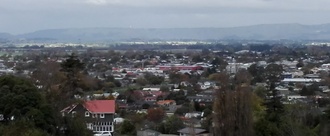
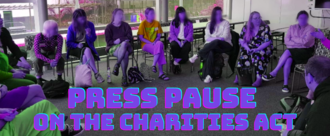
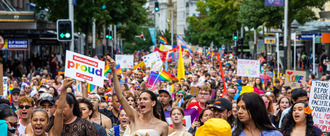
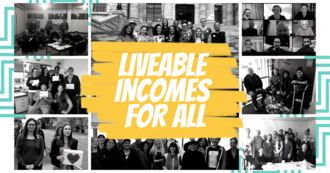.png)




.png)
